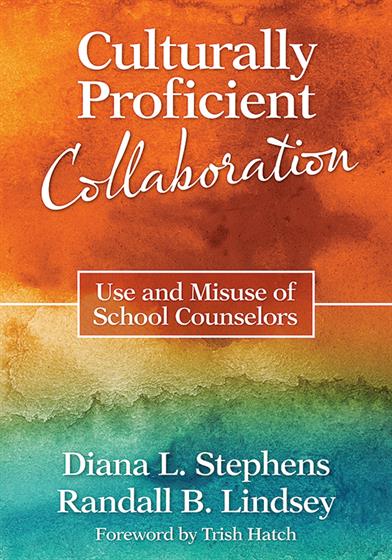Foreword by Trish Hatch
Acknowledgements
About the Authors
Introduction
Part 1. The Changing Role of School Counselor- Schoolwide Leadership
1. A Historical and Contemporary Perspective on School Counseling
Getting Centered
The Intent of This Chapter
Why on Earth do I Need to Know the History of School Counseling?
The Role of Counselor Began in Vocational Guidance
Who Defines the Role of School Counselor?
Counselor as Mental Health Provider
Paradigm Shift: From Reactive Services to Comprehensive Programs
NCLB and Standards-Based School Counseling
Going Deeper
2. 21st Century Counselors Focus on Student Achievement
Getting Centered
The Intent of This Chapter
Times are Changing: The New Role of School Counselor
Counselors Using Data as Catalyst for Transformational Change
Reframing Our Thinking About Data
An Illustration of the Benefits of Counselors Collecting and Analyzing Data
School Counselors as Powerful Leadership Agents of Change
From Gatekeeper to Transformer
Cultural Proficiency Provides a Context
Going Deeper
3. The Tools of Cultural Proficiency Provides a Framework for Collaboration
Getting Centered
Suggested Guidelines as You Consider Cultural Proficiency
Concept of Intentionality
Cultural Proficiency?s Inside-Out Process
Cultural Proficiency: A Paradigm Shift
Cultural Proficiency as a Lens
The Cultural Proficiency Tools
Cultural Proficiency and Counselors
Going Deeper
Part II. Maple View - Sitting in the Fire: A Context for Culturally Proficient Counseling
4. Counselor Collaboration Rubric
Getting Centered
Unpacking the Rubric
Going Deeper
5. Assessing Cultural Knowledge Through Leadership
Getting Centered
Assessing Cultural Knowledge Through Leadership
Using the Rubric: Assessing & Developing Cultural Knowledge through Leadership
Safe School Climate at Maple View Elementary School
Going Deeper
6. Valuing Diversity Through Advocacy
Getting Centered
Valuing Diversity Through Advocacy
Using the Rubric: Valuing Diversity Through Advocacy
Tragedy at Pine View Middle School
Going Deeper
7. Managing the Dynamics of Difference Through Teaming and Collaboration
Getting Centered
Managing the Dynamics of Difference through Teaming and Collaboration
Using the Rubric: Managing the Dynamics of Difference through Teaming and Collaboration
Access Issues at Pine Hills High School
Going Deeper
8. Adapting to Diversity Through Counseling and Coordination
Getting Centered
Adapting to Diversity through Counseling and Coordination
Using the Rubric: Adapting to Diversity through Counseling and Coordination
Pregnancy as an Access Issue at Pine Hills High School
Going Deeper
9. Institutionalizing Cultural Knowledge through Assessment and Use of Data
Getting Centered
Institutionalizing Cultural Knowledge through Assessment and Use of Data
Using the Rubric: Institutionalizing Cultural Knowledge Through Assessment and Use of Data
Pine View Middle School on Faith and Heterosexism
Part III. Next Steps
10. Sustaining Culturally Proficient Counseling: Developing a Personal Action Plan
Sense of Urgency
The ‘Inside-Out’ Process is for – You, Your School and Your Community
Seven Steps for Providing Equity
Resource A. Maple View School District Vignette Story Board
Resource B. Pine View Middle School Schoolwide Needs Assessment (Teacher Version)
Resource C. Matrix: How to Use Cultural Proficiency Books
Resource D. Online Resources for Educator Use
References




